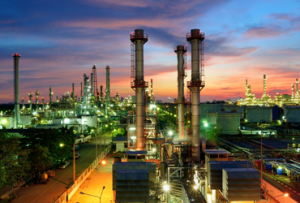Like any employment sector, there is a legion of different roles open within the gas and oil industry. Anybody with a background in medicine, IT or law, for example, will find vacant positions on many rigs, as will contractors from within the building sector such as scaffolders.
Instead of simply transferring skills, there are jobs that can only be learned from the ground up, especially when it comes to the physical aspect. When it comes to specialised roles within the field, however, here are some of the most common positions available if you’re looking to join the energy industry in a professional capacity:
Roustabout
The position of Roustabout is the lowest ranking on an oil rig, but it’s also the most accessible; it’s an unskilled position that does not require particular qualifications, and it can be a way of gaining experience and access to higher positions within the oil rig hierarchy.
What a Roustabout will need, however, is plenty of endurance and strength. This is a manual labour position that may lead to shifts of up to twelve hours and overnight work. Typical tasks include inspections of pipes for imperfections, digging and cleaning up the surface area of where other team members will have been working.
Installation Manager
From one extreme to the other – an Installation Manager is the highest-ranking staff member of an oil rig. The role was initially conceived in the aftermath of the Sea Gem disaster of 1965, meaning that one individual holds dominion over all aspects of the oil rig.
The Installation Manager will be expected to make daily rounds and ensure that everything is in full working order, acting with complete authority over the rest of the crew. As you may imagine, it takes a great many qualifications and plenty of training to obtain the role of Installation Manager; anybody hoping to hold this position will need to be registered with the UK Health and Safety Executive.
Geologist
The role of a Geologist is to locate exactly where drilling should begin when searching for oil and/or gas, before overseeing the process and offering advice on how to go ahead. Any form of rock found on-location will also be studied and classified in detail, ensuring that a qualified Geologist will be able to provide a great deal of information on the drilling site and surrounding area.
Quantity Surveyor
A Quantity Surveyor is more often found on a building site, but the role is just as critical on an oil rig. This role will involve overseeing all aspects of the cost and contracts utilised on the offshore location, in addition to acting as the liaison between customers and employees. Just like in the construction industry, the biggest concern of a Quantity Surveyor will be to keep the costs of running an oil rig as low as possible without sacrificing quality and safety.
Pipefitters and Welders
As the name suggests, a pipefitter will be required to follow instructions laid down on paper by engineers to ensure that pipes are installed in a safe and secure manner. A pipefitter will make sure that all part numbers are labelled and present before beginning assembly, cutting every element of the pipe into the correct shape and size ready for welding.
This is, of course, where a welder comes in. This physically demanding role involves attaching all these metals together and ensuring that they will stand firm in the face of any pressure from the elements or ravages of time.
Diver
A diver based on an offshore oil rig will be responsible for all aspects of work that take place underwater. This could include inspecting pipelines, underwater welding, taking photographs for presentation to other members of the oil rig crew, or installing new pipelines/decommissioning existing lines that are no longer functional. Naturally it can be dangerous work, but this is reflected in the substantial average wage.
Engineer
There is a wide array of different engineering positions open on any typical oil rig. Naturally, the appropriate qualifications will be necessary – and some work experience will often be preferable.
- Drilling Engineers
A Drilling Engineer may not have to be based on-site at an oil rig, but many rigs may choose to bring someone of such a position in to act in a supervisory capacity. The key responsibility of such a role is to plan, design and expense all elements of the enterprise connected to drilling.
- Planning Engineers
A Planning Engineer will observe and report on all the tasks that take place on an oil rig, ensuring that work does not fall behind schedule and acts as a point of liaison between employees of all levels. Like a Drilling Engineer, a Planning Engineer may not have to be on-site at all times.
- Subsea Engineers
Subsea Engineers work on the apparatus used by divers on an oil rig, ensuring that materials used for underwater activity are fit for purpose. These engineers will design the equipment, install it where necessary, and maintain it over time.
- Marine Engineers
There are more than just drills involved in working on an offshore oil rig, and the role of Marine Engineer is to make sure that any boats, ships and anything else that any employee may need to use are in full working order – designing and building more if required.
- Mechanical Engineers
With all kinds of equipment in use on an offshore oil rig, it will require the attention of an expert to ensure it all works to full capacity. If something needs to be fixed or replaced, a Mechanical Engineer will often be the first port of call.
Whichever role you feel most suited for, a career in the oil and gas industry is sure to support you in the short-term, plus give you a range of transferable skills for future employment opportunities.

